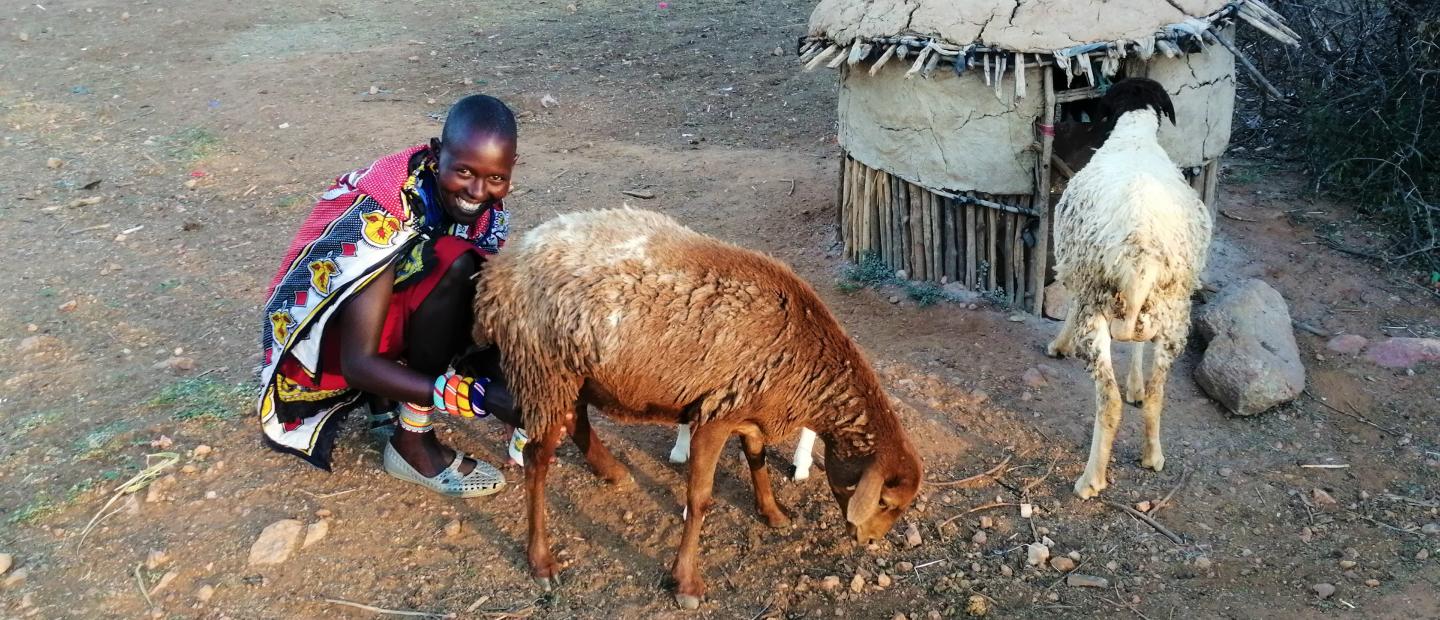Collect Mobile: Collecting Data on the Socioeconomic Impacts of Restoration Activities in Kenya’s Mount Kulal and Mukogodo Forests
Collect Mobile: Collecting Data on the Socioeconomic Impacts of Restoration Activities in Kenya’s Mount Kulal and Mukogodo Forests

Collect Mobile is being used to monitor the socioeconomic impacts of restoration and bio-enterprise activities in the Mount Kulal and Mukogodo landscapes as part of a project led by the Food and Agriculture Organization of the United Nations (FAO) to restore arid and semi-arid lands in Kenya. The goal of the project is to build capacity for community-led restoration to ensure the resources of the Mount Kulal and Mukogodo landscapes are sustainably managed and can support healthy livestock, which is the main source of livelihood in the region.
The restoration and income-generating activities being implemented include: tree cultivation, which improves soil stability and fertility; tree nursery establishment, which provides income through seedling sales; fruit tree agroforestry, which provides food and income; and grass re-seeding, which provides year-round livestock pasture and thereby reduces household grass-feed costs and livestock losses during dry seasons. Through the project, the community is also developing bio-enterprises – such as honey production; ecotourism; and the sale of aloe, gums, and resins – to provide environmentally-friendly, alternative sources of income. And through the creation of participatory forest conservation management plans, the community is ensuring sustainable use of resources and protecting the forests from livestock.
Collect Mobile was used to establish baseline socioeconomic data for households participating in the project and will be used again in four years (at project completion) to assess how restoration activities have influenced socioeconomic factors. The socioeconomic factors considered include: capacity for natural resource management (defined as “human capital”), community governance (“social capital”), restoration and natural regeneration (“natural capital”), and income-generating activities (“financial capital”).
Collect Mobile was selected as the data collection tool for this project because it is free and it was convenient for the national FAO Monitoring and Evaluation Team to train data collectors to use the application. Collect Mobile was particularly useful because the tool does not require internet connectivity and many of the project sites were remote. Collect Mobile records data through customizable surveys that are designed with the Open Foris Collect tool.
To establish the baseline, data were collected from 681 households in the Mount Kulal and Mukogodo landscapes. The data collection process took two weeks per location with a team of approximately 30 staff. Data were collected through household surveys and then uploaded to Open Foris Collect, where the data could be exported to Excel and analyzed.
The indicators and metrics collected as part of the Collect Mobile surveys were selected in consultation with national and local teams, taking local conditions into account. The types of information collected included main sources of livelihoods, community governance structures and registration by gender, average annual household income by household leadership arrangement, and income from the collection of non-timber forest products (NTFPs). Specific indicators included the average annual income by heads of households, major household expenses, how frequently communities were permitted to access the forest and collect NTFPs, whether NTFPs were sold or used by the household, and gender roles in the collection of NTFPs.
Data were also collected on community knowledge and existing access to support. This included local knowledge and strategies that communities use to ensure sufficient feed for livestock throughout the year as well as awareness of environmental laws; how the community was involved in developing management plans; what restoration activities had been undertaken by whom, when, and how (e.g., tree planting and reseeding activities); and whether communities had accrued benefits from past forest landscape restoration interventions. The survey further explored the extent to which communities access government programs for financial support and capacity building, such as the Water Sector Trust Fund (WSTF), which is a Kenyan State Corporation under the Ministry of Water & Sanitation and Irrigation that provides conditional and unconditional grants to counties and assists in financing the development and management of water and sanitation services in marginalized and underserved areas.
By collecting baseline and endpoint data on a wide range of socioeconomic factors using Collect Mobile, the project implementers and community members can better assess the extent to which activities achieved the expected outcomes.
